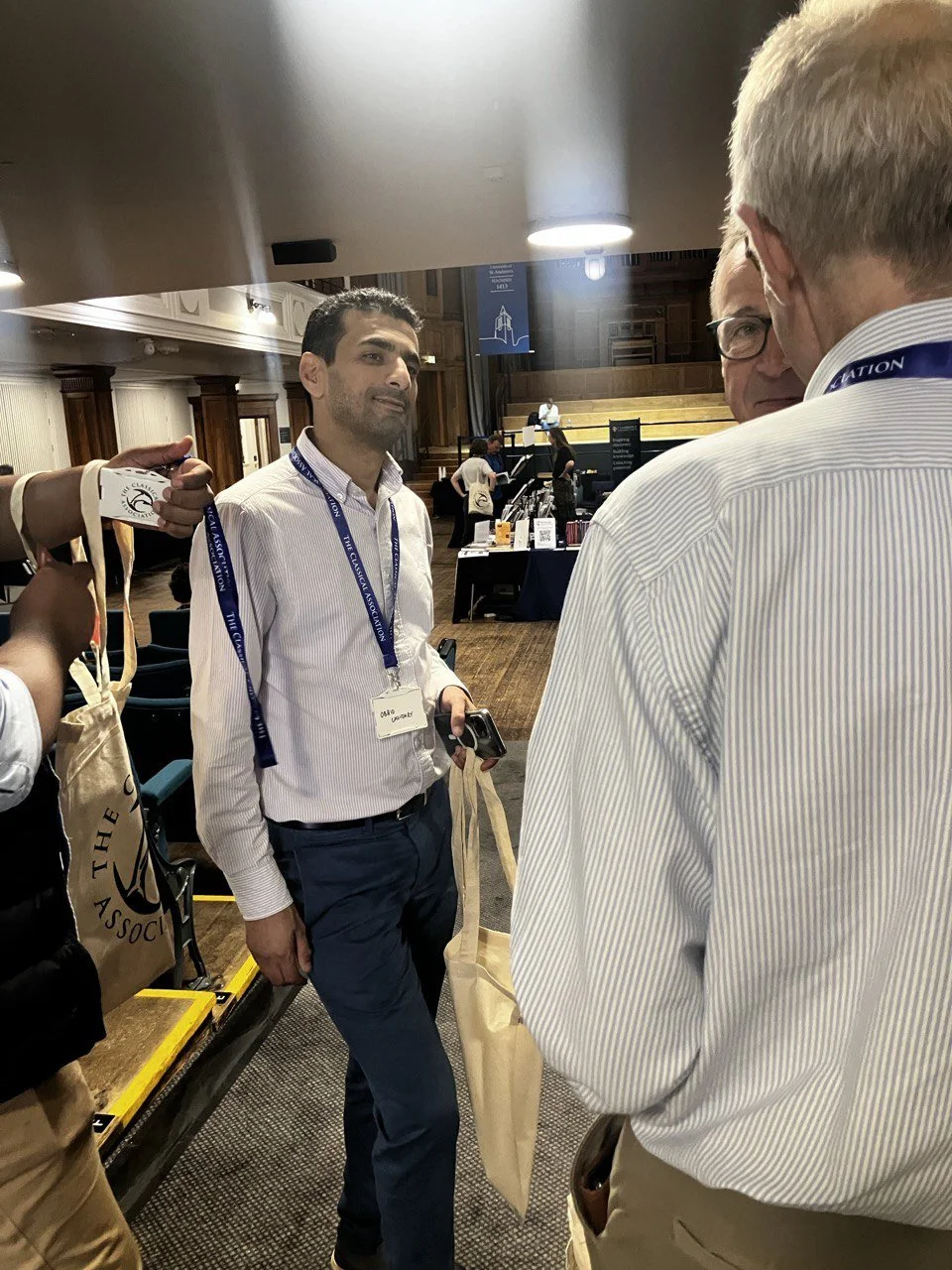Expanding the Canon: The Classical Institute’s Experience at the Classical Association Conference
Reading time: 6 minutes
Reflections and Future Directions
In July, scholars, educators, and students from across the world gathered at the University of St Andrews for the annual Classical Association Conference, one of the most important events in the field of Classics. The conference is renowned for bringing together leading voices in the discipline, fostering dialogue on new research, and setting the direction for future scholarship. For us at The Classical Institute, it was an invaluable opportunity to contribute to these conversations and to reflect on the wider role of classical education today.
Set against the historic backdrop of the University of St Andrews, the conference was more than a gathering of minds; it was a glimpse into the future of the field. We were delighted to attend, and the experience affirmed the vital work we are committed to at The Classical Institute.
We were joined by our Classics teacher, John Claughton, whose long-standing dedication to making a rigorous classical education accessible to all brought a unique depth to our conversations. His presence was a reminder that the most profound insights often arise at the intersection of scholarship and dedicated pedagogy.
A powerful theme that resonated throughout the conference was the recognition that the classical world can no longer remain a closed garden for elite academic circles. There was a widespread acknowledgement, sometimes spoken, sometimes simply understood, that the field is being enriched by voices from outside its traditional confines. Adult learners, interfaith audiences, and interdisciplinary scholars are not merely passive recipients of knowledge; they are active contributors whose perspectives are reshaping the discipline. Inclusivity is no longer an abstract ideal but an essential principle guiding how we engage with the classical past.
This evolving landscape provided a fertile ground for the conversations we initiated on behalf of The Classical Institute. We were gratified by the genuine scholarly interest and openness that met our work on the intersections between Eastern and Western intellectual traditions. Our focus on Islamic philosophical theology, and its towering figures such as Al-Farabi, Ibn Sina, and Ibn Rushd, was received as a necessary and welcome contribution. We sensed a clear momentum toward embracing the Islamic intellectual tradition not as an appendix to the classics, but as an integral part of a global classical canon.
One of the most revealing moments came from a remark by a fellow attendee:
"Fascinating to see Averroes and Avicenna amongst the Greats!"
This comment was both deeply encouraging and illuminating. It celebrated the growing recognition of philosophers like Averroes and Avicenna, yet it also subtly highlighted a persistent gap. While these thinkers are increasingly referenced, their presence in formal panels and programme descriptions remains rare. They are acknowledged, but not always given a seat at the table. This underscores the crucial need for institutions like ours, which are committed to placing these vital intercultural dialogues at the very heart of classical education.
The conference confirmed that a more integrated, holistic, and honest understanding of the classical tradition is not just wanted, but urgently needed. This vision demands an approach that weaves together the intellectual tapestries of Greek, Latin, Arabic, Persian, and other great classical traditions.
We were therefore thrilled by the announcement of next year’s conference theme, which will spotlight diverse perspectives within classical studies. This is a timely and courageous step, offering a powerful platform to elevate the traditions and voices that have too often been treated as peripheral.
As the definition of classical continues to expand, so too does our capacity for deeper, richer, and more connected lines of inquiry. We at The Classical Institute are energised by this shift and look forward to contributing to it. Our mission remains firm: to foster a classical education that is not only rooted in historical strength but is defined by its intellectual openness, spiritual depth, and global relevance.





